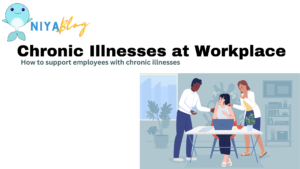
In a world where mental health issues are prevalent and often approached with a narrow focus on symptoms and diagnoses, holistic healing offers a paradigm shift that can truly transform our well-being.
Imagine if you had a leak in your roof and every time it rained, you rushed to put a bucket under the drip to catch the water. While the bucket may temporarily address the symptom of the leak, the underlying issue of a damaged roof would persist, causing ongoing problems.
Similarly, when it comes to mental health, simply addressing symptoms or relying solely on medication without addressing the underlying root causes is akin to catching water in a bucket.
Holistic healing, on the other hand, takes a broader perspective that looks at the entire structure of the roof, identifying and addressing the underlying causes of mental health issues. It acknowledges that mental health is influenced by a complex interplay of factors, including our physical health, emotions, thoughts, beliefs, lifestyle, environment, and more.
Just as a healthy roof requires a holistic approach that considers the integrity of the entire structure, our mental health also requires a comprehensive approach to truly thrive.
The holistic healing paradigm for well-being encompasses a wide range of modalities, such as mindfulness, nutrition, exercise, sleep, therapy, social support, self-care, and stress management, among others.
It recognizes that these different aspects of our being are interconnected and impact each other, and that addressing them collectively can lead to profound transformation.
Together, let’s embark on a path of true well-being and holistic healing!
Holistic Healing: A Multidimensional Approach to Mental Well-Being

Holistic healing is an approach to mental well-being that recognizes the interconnectedness of various aspects of our being and seeks to address them in a comprehensive and integrated manner.
It goes beyond the traditional reductionist approach of treating symptoms or focusing solely on the mind, and instead embraces a multidimensional approach that considers the physical, emotional, social, and spiritual aspects of an individual.
- One of the key principles of holistic healing is the understanding that the mind and body are deeply interconnected.
For example, an example that illustrates the principle of the deep interconnection between the mind and body in holistic healing is stress management. When we experience stress, whether it’s from work, relationships, or other life challenges, it can take a toll on both our mental and physical health.
Under the holistic healing approach, stress is not viewed as purely psychological, but as something that affects our entire being.
Chronic stress can lead to a wide range of physical symptoms such as headaches, digestive issues, muscle tension, and weakened immune function. It can also impact our mental and emotional well-being, leading to anxiety, depression, and other mental health issues.
In holistic healing, addressing stress involves not only managing the psychological and emotional aspects, but also considering the physical impact.
By recognizing the interconnectedness of the mind and body, holistic healing aims to address the underlying causes of stress and promote overall well-being. By managing stress at all levels – mental, emotional, and physical – holistic healing seeks to restore balance and harmony to the entire person, promoting optimal health and wellness.
- Another important aspect of holistic healing is the recognition that emotional and mental health are intertwined. Our emotions and thoughts are closely linked, and our mental state can greatly impact our emotional well-being.
For instance, negative thought patterns or limiting beliefs can contribute to emotional distress, while cultivating positive and empowering thoughts can enhance emotional resilience. Holistic healing seeks to address both emotions and thoughts, helping individuals develop healthy emotional intelligence and mental resilience.
- Holistic healing acknowledges the spiritual dimension of human existence. This does not necessarily refer to religious or spiritual beliefs, but rather the recognition of the intrinsic human need for meaning, purpose, and connection.
Nurturing our spiritual well-being can involve practices such as mindfulness, meditation, or engaging in activities that bring joy and fulfillment. It can also involve cultivating positive relationships, fostering a sense of community, and connecting with something greater than oneself.
Holistic healing recognizes the significance of addressing the spiritual dimension to achieve overall mental well-being.
The Mind-Body Connection: Understanding the Interconnectedness in Holistic Healing

The mind-body connection refers to the intricate relationship between the mind (our thoughts, emotions, and beliefs) and the body (our physical sensations, behaviors, and physiological responses).
Two common approaches to understanding the mind-body connection are the top-down and bottom-up approaches.
Top-down approach: This approach emphasizes the influence of the mind on the body. It views the mind as the driver, with thoughts, emotions, and beliefs having a direct impact on our physical health. For example, stress or anxiety can trigger physiological responses in the body, such as increased heart rate, muscle tension, or changes in immune function. In this approach, interventions focus on addressing the mental and emotional aspects of a person to positively impact their physical well-being.
Techniques such as cognitive-behavioral therapy (CBT), meditation, and relaxation techniques are often used to help individuals manage stress, anxiety, and other mental health conditions, with the belief that improved mental well-being will lead to better physical health.
Bottom-up approach: This approach emphasizes the influence of the body on the mind. It views the body as the foundation, with physiological processes and sensations influencing our thoughts, emotions, and behaviors. For example, physical activities like exercise, yoga, or even simple acts like smiling or deep breathing can trigger the release of endorphins and other neurotransmitters in the brain, leading to improved mood and emotional well-being.
In this approach, interventions focus on caring for the body through nutrition, exercise, and other physical modalities, with the belief that improved physical health will positively impact mental and emotional well-being.
Both top-down and bottom-up approaches recognize the mind and body as interconnected and mutually influencing each other.
The choice of approach may vary depending on the individual’s needs, preferences, and the nature of their condition, and a combination of both approaches may often be used in holistic healing practices to promote holistic wellness.
Transforming Mental Health: Strategies for Wholeness and Well-Being through Holistic Healing

Holistic healing encompasses a wide range of strategies and practices that can be integrated into one’s lifestyle to promote wholeness and well-being. Here are some strategies that can be utilized as part of a holistic healing approach:
- Mindful Awareness: Practicing mindfulness involves paying attention to the present moment with non-judgmental awareness. This can help individuals become more attuned to their thoughts, emotions, sensations, and surroundings, allowing them to develop a deeper understanding of themselves and their experiences. Mindfulness can be cultivated through various techniques, such as meditation, breath awareness, or body scan exercises, and can help reduce stress, increase self-awareness, and promote mental well-being.
- Balanced Nutrition: A healthy diet is essential for overall well-being, including mental health. Consuming a balanced diet that is rich in nutrients, vitamins, and minerals can support optimal brain function and mood regulation. A diet that includes a variety of whole foods, such as fruits, vegetables, lean proteins, healthy fats, and complex carbohydrates, can provide the nourishment needed for physical and mental health.
- Physical Activity: Regular physical exercise is known to have numerous benefits for mental health. Exercise promotes the release of endorphins, which are natural mood-boosting chemicals in the brain, and can help reduce stress, anxiety, and depression. Engaging in activities such as walking, jogging, dancing, yoga, or strength training can promote physical well-being and contribute to a healthy mind-body connection.
- Emotional Healing: Emotions play a significant role in mental health, and addressing emotional wounds and traumas is crucial for holistic healing. This may involve seeking support from a therapist or counselor to process and resolve emotional issues, practicing self-compassion, and engaging in emotional regulation techniques such as journaling, art therapy, or mindfulness-based cognitive therapy.
- Social Connection: Human beings are inherently social creatures, and nurturing healthy social connections is vital for mental well-being. Spending time with loved ones, building a support system, and engaging in meaningful relationships can provide emotional support, foster a sense of belonging, and promote overall well-being.
- Spirituality: Cultivating a sense of spirituality can be an important aspect of holistic healing for some individuals. This may involve engaging in practices such as meditation, prayer, or reflection, connecting with nature, or exploring personal beliefs and values. Spirituality can provide a sense of purpose, meaning, and connection, contributing to overall well-being.
It is important to remember that holistic healing is a personalized approach, and what works for one person may not work for another. It is essential to listen to one’s own body and mind, and work with qualified professionals as needed to develop a holistic healing plan that suits individual needs and goals.
Introducing Niya to help your step up your holistic healing approach
Niya helps you evaluate the existing situation that might be impacting your mental wellbeing. With validated digital tools, expert coaching, and counseling sessions, Niya provides individualized assistance tailored to specific requirements.
Through chat and video calls, the Niya app offers support that is accessible anytime and anywhere, benefiting both individuals and organizations. By providing anonymized data, Niya also aids in pinpointing areas requiring targeted interventions, thereby enhancing productivity, performance, engagement, and overall health and happiness.
It is crucial to create a workplace culture that prioritizes people’s well-being and acknowledges the significance of mental health.
By selecting Niya, employees can rely on receiving confidential care, resulting in a happier and healthier workplace, allowing them to flourish.
Ready to tackle mental health troubles head-on? Email your interest on [email protected]. We will schedule a product demo for you.







